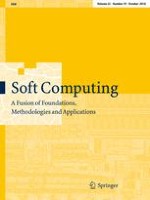04.07.2017 | Methodologies and Application
An improved double-population artificial bee colony algorithm based on heterogeneous comprehensive learning
Erschienen in: Soft Computing | Ausgabe 19/2018
EinloggenAktivieren Sie unsere intelligente Suche, um passende Fachinhalte oder Patente zu finden.
Wählen Sie Textabschnitte aus um mit Künstlicher Intelligenz passenden Patente zu finden. powered by
Markieren Sie Textabschnitte, um KI-gestützt weitere passende Inhalte zu finden. powered by
